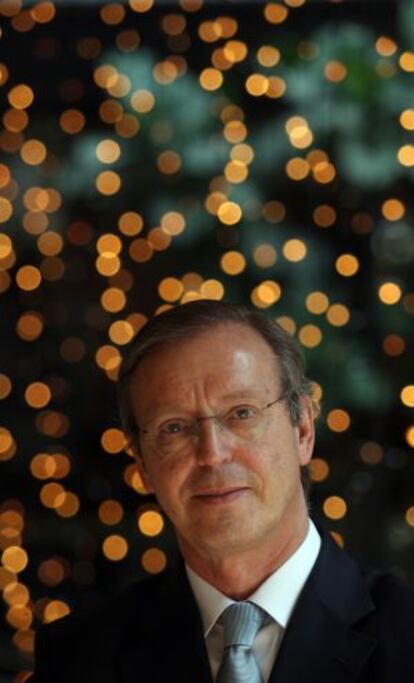"It should be a state's obligation to pay for the exhumation of war victims"
Portuguese forensic institute chief Duarte Nuno Vieira discusses torture, atrocities and war crimes

For Dr Duarte Nuno Vieira, the torture of detainees in any country doesn't necessarily have to involve physical pain. It can be psychological distress stemming from intimidation, conditions of confinement or legal limitations through the denial of giving a person access to a lawyer, doctor or a human rights official.
The president of the National Institute of Forensic Medicine of Portugal in Coimbra has traveled to many countries as a member of international commissions set up to investigate torture, atrocities and war crimes.
"There is not one country that is immune from torture," Vieira said on Wednesday in a telephone interview from Ponce, Puerto Rico, where he was participating in a two-day congress on human rights sponsored by the Pontifical Catholic University of Puerto Rico (PUCPR). "Many times the state doesn't know what it is occurring; it can be just one police officer who causes suffering in order to obtain information ."
Taking part in such missions, Vieira, 53, has met and interviewed prisoners, examined penitentiary conditions and reported to government officials over the past four years across Europe and Africa. By some accounts, it is estimated that between nine and 10 million people are currently serving time in prisons around the world. He said it is imperative that all countries abide by the UN Declaration of Human Rights, specifically Article 5 which states: "No one shall be subjected to torture or to cruel, inhuman or degrading treatment or punishment."
Forensic medicine has been crucial in torture investigations, and Vieira has pushed for the use of such expertise in more international inquiries. In an article published two years ago in Revista Española de Medicina Legal, Vieira explained that over the years he has seen "unfortunate deficiencies and insufficiencies" in expert reports concerning torture and inhumane conditions coming out of investigating commissions.
There is not one country that is immune from torture," says Vieira
Forensic experts assigned to these visiting delegations can help identify "possible lesions or signs of abuse," offer an opinion on the medical examinations carried out on the victim, and help alert government and judicial authorities about the physical and psychological traumas detainees, who are being held for whatever reason, are going through, he wrote. "Today, the participation of forensic medical experts in these investigations is considered absolutely essential."
Forensic medicine has also been an important tool in investigating war crimes, no matter how far back in history they were committed. Vieira, who also serves on the executive board of the European Council of Legal Medicine, is a firm believer that governments must use their resources to help families who are trying to recover bodies of loved ones buried in mass or common graves in any part of the world.
Forensic medicine has been crucial in torture investigations
"Every person has the right to a proper burial," he told EL PAÍS. "It should be the state's obligation to recover bodies that have been buried in other places, and it is a fundamental right that they are returned to their families."
Several years ago, he recalled, the Portuguese government helped in the exhumation and transfer of the body of a colonel who was buried in the former colony of East Timor. The officer was buried along with others but it was only his family who pushed to have his remains returned to Portugal for a proper burial.
"If the family wishes it, then the state must ensure that it is carried out - but again only if the family wishes this," Vieira said.
The Portuguese Defense Ministry and military associations have also been active in searching for and identifying remains of soldiers who are buried in other former colonies such as Angola, Mozambique and Guinea-Bissau, with the goal of having these bodies repatriated.
Tu suscripción se está usando en otro dispositivo
¿Quieres añadir otro usuario a tu suscripción?
Si continúas leyendo en este dispositivo, no se podrá leer en el otro.
FlechaTu suscripción se está usando en otro dispositivo y solo puedes acceder a EL PAÍS desde un dispositivo a la vez.
Si quieres compartir tu cuenta, cambia tu suscripción a la modalidad Premium, así podrás añadir otro usuario. Cada uno accederá con su propia cuenta de email, lo que os permitirá personalizar vuestra experiencia en EL PAÍS.
¿Tienes una suscripción de empresa? Accede aquí para contratar más cuentas.
En el caso de no saber quién está usando tu cuenta, te recomendamos cambiar tu contraseña aquí.
Si decides continuar compartiendo tu cuenta, este mensaje se mostrará en tu dispositivo y en el de la otra persona que está usando tu cuenta de forma indefinida, afectando a tu experiencia de lectura. Puedes consultar aquí los términos y condiciones de la suscripción digital.








































